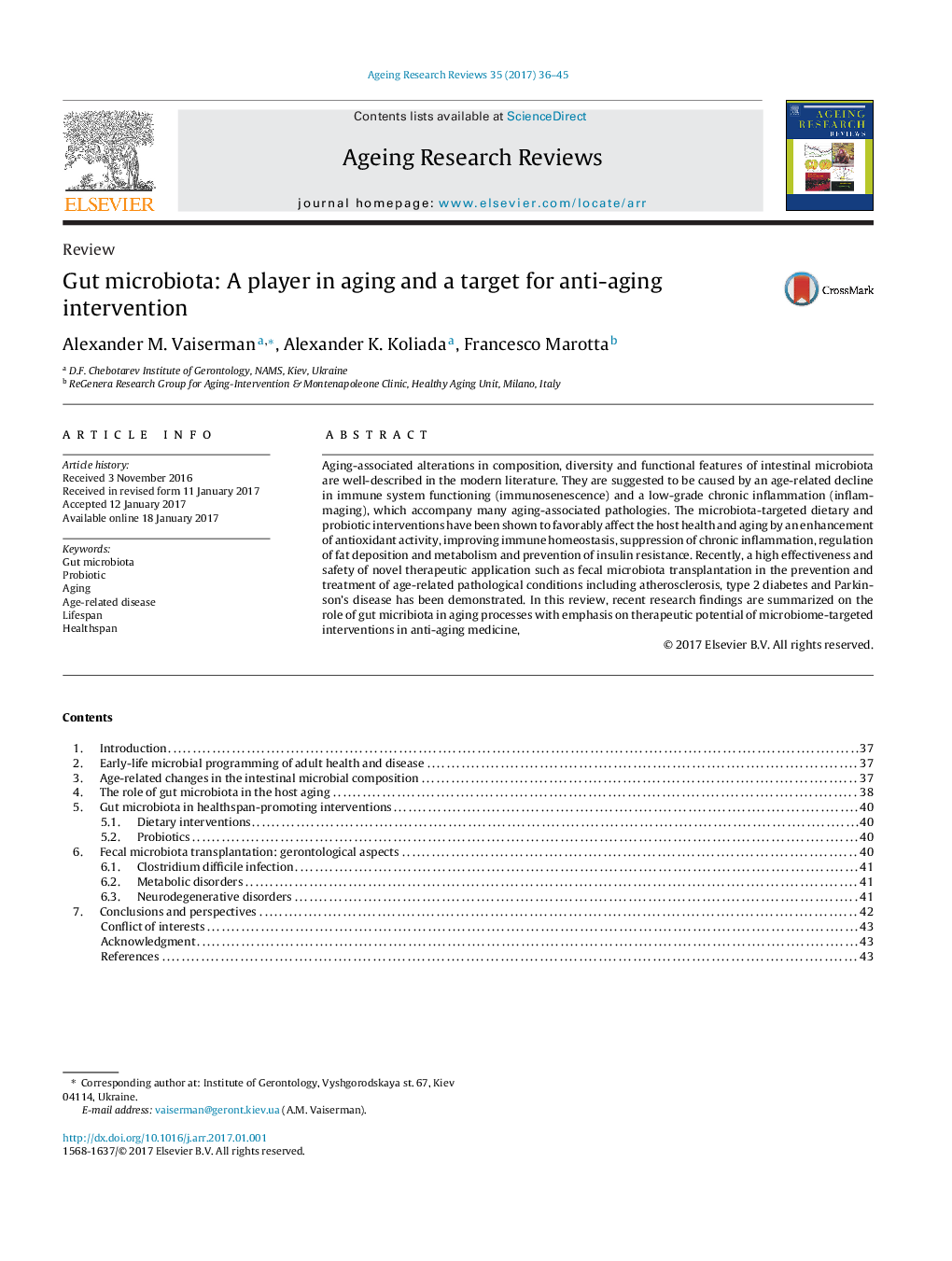| Article ID | Journal | Published Year | Pages | File Type |
|---|---|---|---|---|
| 5500715 | Ageing Research Reviews | 2017 | 10 Pages |
Abstract
Aging-associated alterations in composition, diversity and functional features of intestinal microbiota are well-described in the modern literature. They are suggested to be caused by an age-related decline in immune system functioning (immunosenescence) and a low-grade chronic inflammation (inflammaging), which accompany many aging-associated pathologies. The microbiota-targeted dietary and probiotic interventions have been shown to favorably affect the host health and aging by an enhancement of antioxidant activity, improving immune homeostasis, suppression of chronic inflammation, regulation of fat deposition and metabolism and prevention of insulin resistance. Recently, a high effectiveness and safety of novel therapeutic application such as fecal microbiota transplantation in the prevention and treatment of age-related pathological conditions including atherosclerosis, type 2 diabetes and Parkinson's disease has been demonstrated. In this review, recent research findings are summarized on the role of gut micribiota in aging processes with emphasis on therapeutic potential of microbiome-targeted interventions in anti-aging medicine,
Related Topics
Life Sciences
Biochemistry, Genetics and Molecular Biology
Ageing
Authors
Alexander M. Vaiserman, Alexander K. Koliada, Francesco Marotta,
